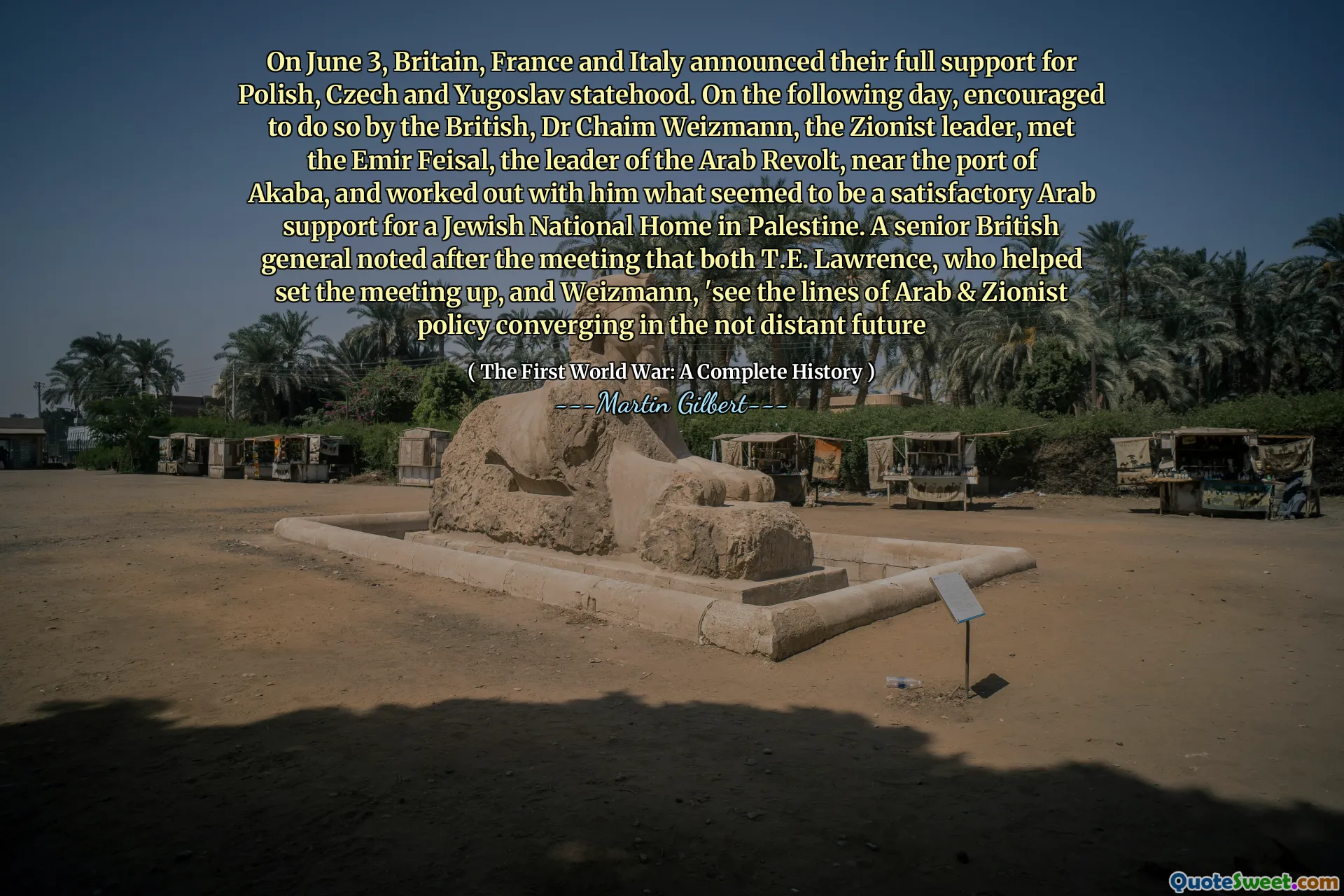
On June 3, Britain, France and Italy announced their full support for Polish, Czech and Yugoslav statehood. On the following day, encouraged to do so by the British, Dr Chaim Weizmann, the Zionist leader, met the Emir Feisal, the leader of the Arab Revolt, near the port of Akaba, and worked out with him what seemed to be a satisfactory Arab support for a Jewish National Home in Palestine. A senior British general noted after the meeting that both T.E. Lawrence, who helped set the meeting up, and Weizmann, 'see the lines of Arab & Zionist policy converging in the not distant future
On June 3, 1919, Britain, France, and Italy expressed their strong backing for the establishment of independent states for Poland, Czechoslovakia, and Yugoslavia. This marked a significant shift in support for national self-determination in post-war Europe. The following day, British encouragement led Dr. Chaim Weizmann, a prominent Zionist leader, to meet Emir Feisal, the head of the Arab Revolt, at Akaba. They discussed a potential agreement that would align Arab support for a Jewish National Home in Palestine.
A senior British general remarked that this meeting indicated a promising convergence of Arab and Zionist interests, facilitated by figures like T.E. Lawrence and Weizmann. Their discussions suggested a future collaboration that could bridge the aspirations of both groups amidst the complex political landscape of the time. This interaction foreshadowed the intertwined destinies of Arabs and Jews in the context of the evolving political map in the region.











